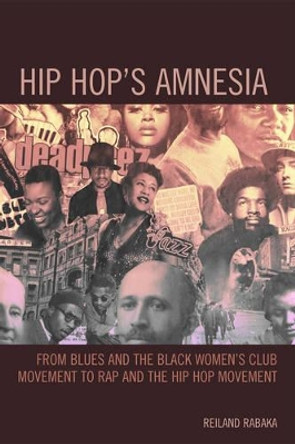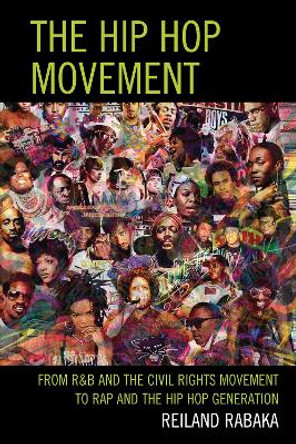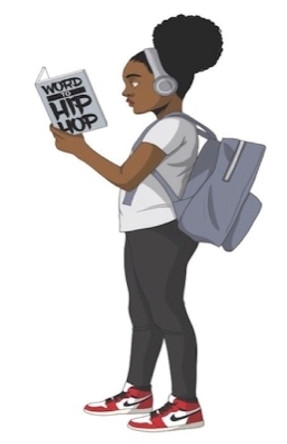Description
About the Author
Reiland Rabaka is an associate professor of Africana studies in the Department of Ethnic Studies at the University of Colorado, Boulder, where he is also an affiliate professor in the Women and Gender Studies Program and a Research Fellow at the Center for Studies of Ethnicity and Race in America (CSERA). He is the author of several books, including: Du Bois's Dialectics (2008); Africana Critical Theory (2009); Forms of Fanonism (2010); and Against Epistemic Apartheid (2010). He is also the recipient of the Cheikh Anta Diop Distinguished Career Award.
Reviews
Rabaka (Univ. of Colorado, Boulder) offers a sweeping historical assessment of cultural ideologies connecting hip-hop to artistic innovations of the Harlem Renaissance and Black Arts movements. He mobilizes cultural theorists - Baraka, Foucault, DuBois, Jameson, Said, Fanon, Hurston - to describe the evolution of African American intellectual and cultural history via 'radical humanism, and democratic socialism.' Sprawling overviews of Africana critical theory, feminist theory, and queer theory imagine 'anti-racist, anti-capitalist, anti-colonialist, and sexual orientation-sensitive critical theory of contemporary society.' The author provides interesting, if diffuse, discussion of gay literary voices in the Harlem Renaissance in relation to the contemporary homo-hop movement; Black Arts Movement members' perception of the aesthetic radicalism of the Harlem Renaissance'; and the 'black aesthetic' sensibility that ''authentic' black art was always historically grounded, politically engaged, socially uplifting, and consciousness-raising.' In exploring the relationships between the black women's liberation, feminist art, and hip-hop feminist movements, Rabaka mines work by Patricia Collins. In a final chapter, he considers postmodernist approaches to popular culture while asserting that 'rap music re-Africanizes and reanimates African American music, all the while continuing the African Americanization of mainstream American music and popular culture....' Summing Up: Recommended. Upper-division undergraduates, graduate students. * CHOICE *
You remember when you fell in love with hip-hop. Now, be reminded why. * SoulTrain.com *
Reiland Rabaka demonstrates, with great agility, that hip-hop has wide-reaching artistic and intellectual roots in the history of African American cultural production. This book is an essential addition to an expanding corpus of rich scholarship on hip-hop. It is a welcome contribution with fresh perspectives on the dynamics of gender, class and race in the context of hip-hop-beyond beats and rhymes. -- Jeffrey Ogbar, University of Connecticut
Hip-Hop's Inheritance is an extraordinary journey through the last decade of hip-hop criticism that situates the contemporary hip-hop moment into the historical continuum of black political, cultural and gender struggles in the US. With unflinching compassion, piercing intellect and unwavering scholarship,Reiland Rabaka advances a long overdue critical theory of hip-hop culture. -- Bakari Kitwana, author of Why White Kids Love Hip-Hop: Wankstas, Wiggers, Wannabes and the New Reality of Race in America
Book Information
ISBN 9780739164815
Author Reiland Rabaka
Format Paperback
Page Count 302
Imprint Lexington Books
Publisher Lexington Books
Weight(grams) 454g
Dimensions(mm) 229mm * 156mm * 18mm








